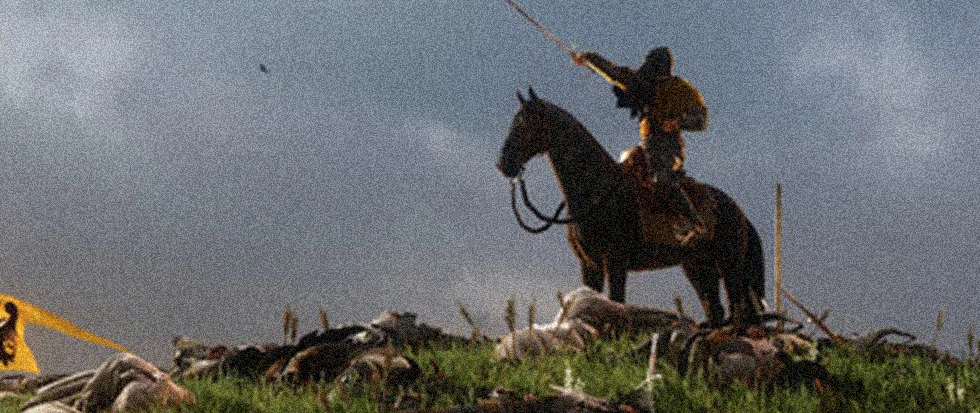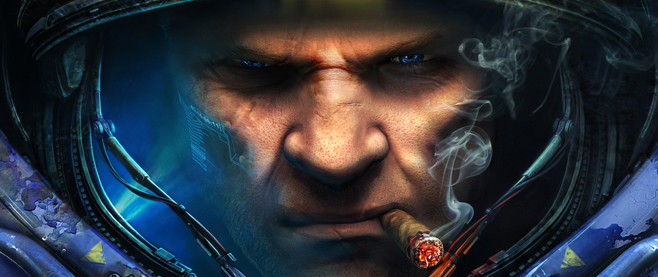
Kingdom Come: Deliverance – Myth-making and Historical Accuracy
Henry, the player character in Kingdom Come: Deliverance, is designed to come across as a real human being. He gets hungry if he doesn’t eat enough, tired when he’s been awake for too long and grosses out people when he’s skipped too many baths. Nobody expects a complete simulation of human biology in Henry – players don’t need a meter gauging whether his nails need clipping – but what is represented in the simulation of his body goes a long way toward turning him into a more lifelike character. Making Henry believable is a process of selection – of sorting out what’s important to Deliverance’s designers and what isn’t. It reflects, in its own small way, their priorities.
As a portrait of Central Europe’s late medieval period, Deliverance also makes a series of decisions as to what is and isn’t historically important to its vision of the past. It’s set in the early 15th Century Kingdom of Bohemia (what’s now Central Bohemia in the Czech Republic) during a period of political upheaval between the reigning Luxembourg Dynasty’s half brothers: King Wenceslas IV1 and Sigismund, future Holy Roman Emperor (then king of Hungary and Croatia).
Billed as a “historically accurate” recreation of 1403 Central Bohemia, Prague-based developer Warhorse Studios promises an authentic medieval experience from Deliverance. The game’s heavy use of visual reference material for local buildings and dress and extensive codices, which range from descriptions of period appropriate coin minting processes to toilet design and waste management, certainly attest to the research that’s gone into its creation.
Retelling history is always a process of choosing which facts to highlight. It’s impossible to show the entire scope of human experience. What’s given weight – or omitted entirely – says more about a historian’s interests than anything else. This is doubly so in the case of historical fiction like Deliverance, which has to decide, from centuries of Central European history, what warrants representation.

After the extended tutorial comes to a close with Sigismund’s destruction of Henry’s hometown, the player arrives in Talmberg alongside a flood of fellow refugees. Little more than a blacksmith’s son, he soon finds himself in the service of the local lord, graduating from guardsman and envoy all the way to a knight. Though the machinations of Central Bohemia’s politicians frame the entire game, Henry spends the bulk of his time among less politically important people. He travels the countryside and visits towns populated by millers and farmers, bandits and priests, the threat of continued violence from foreigners hanging over the land all the while.
None of these outsiders, from Hungarians and Germans to Cuman raiders, come off well. Deliverance’s Bohemia is in turmoil because of the “foreign” Sigismund, who leaves his seat in Hungary to pillage the land with a force of even more exotic, Turkic barbarians as his cavalry. Our first glimpse of the latter sees them attempting to rape a local woman, their speech incomprehensible because it lacks the same English subtitles given to nearly every other character. The Cumans are a constant source of fear in the game. Henry refers to them in an early conversation as “diabolical barbarians from the East with no regard for the rules of warfare.” Others call them “heathen dogs” or “savages.” The player is assured, by one character, that, even though “all armies” will “pillage, rape and slaughter,” it’s the Cumans who “take pleasure in it.”
Strongly associated with a cast of monstrous foreign villains, Sigismund is portrayed almost exclusively as Hungarian, despite the fact that he’s really no less Bohemian than his brother Wenceslas IV. Paul Lendvai’s The Hungarians: A Thousand Years of Victory in Defeat, notes that Sigismund was actually “extremely unpopular, being considered an intruder and a foreigner” in Hungary itself because of his interest in Bohemia and neglect of Hungarian affairs. Another Hungarian featured in the game, an evil noble called Istvan Toth, is shown to be one of the most reprehensible characters Henry encounters. Germans fare no better than Hungarians and Cumans. They’re portrayed as untrustworthy, from a loudmouthed drunk who appears in the tutorial to a duplicitous foreign knight with whom Henry makes an uneasy alliance later in the story.
Henry, and those he speaks to, see these characters as ungodly, terrifying or a threat to their existence because they don’t understand them, but their impressions are mirrored by the game’s story, too. Historical fiction can contextualize the viewpoints of its subjects, but every opportunity to add greater complexity or context to the game’s foreigners – whether their actions were truly as bad or uniquely evil as Henry thinks – is passed over. There’s no effort to explain that Cuman mercenaries would likely have been fighting in Bohemia for the same reason as any other soldier: material gain or political obligation. There’s no attempt made to show the common links between the Czechs and Germans, Hungarians or Cumans, which would both humanize these characters and show the sometimes overlapping cultural and political destiny of their homelands. Like the scared, confused medieval Czech characters they encounter, the player isn’t allowed to benefit from the kind of historical foresight that makes foreigners more than cartoon villains.
This is nothing new to historical fiction, but Deliverance deliberately sets itself apart for deeper scrutiny by its own design. Its Steam page lists “historical accuracy” as a key feature, telling players to expect to “Meet real historical characters and experience the genuine look and feel of medieval Bohemia.” A game that presents itself as authentic begs for its understanding of authenticity to be examined.
Taken in that spirit, examining its view on history for what it says, the ultimate suggestion is that the game’s true Bohemians, despite belonging to the multinational Holy Roman Empire, are under siege from external threats that have come to destroy peace and prosperity.
Even among the Czech characters, straight men alone are presented in a favorable light. The only prominent women among the cast consist of Henry’s mother, his girlfriends (one is slaughtered during the opening raid, the other he woos until they have sex, the player pops an achievement and she fades into the background), the wife of a lord (also open to having sex with Henry) and a nurse from his village. Following the death of his parents, Henry monologuing over their corpses, he addresses his father alone. Later in the game, he finds a group of witches who, mistaking Henry for Satan, offer sex in exchange for the death of all nearby Cumans. Taking drugs with them, he slaughters attackers who, in Henry’s vision, appear as dark-skinned warriors. Once sober again, they’re revealed to actually be white woodcutters or bandits. The only interpretation that makes sense is that Henry, hallucinating, imagines the Cumans as darker than they are, though this is never addressed again.
Striking, too, is that the only gay characters are two of the game’s villains, a deceitful mercenary and his nefarious Hungarian lover. In the case of the game’s women, their disposability is either ignored (as with his dead mom) or played for laughs. Stat-boosting perks provided for just having slept with a woman (displayed through an icon of a lion and the title “Alpha Male”) and goofy montages of Henry and a priest having sex with two village girls are shown not as indications of a restrictive, misogynist society, but as good-natured jokes – the lads out on the town. The gay characters – one appearing primarily in dimly lit nighttime scenes where he tortures Henry or sneaks his way into a castle to hold a defenseless Lady hostage, the other blackmailed by sniggering lords when they find out his sexuality – are presented with what reads as outright malice.

The way Deliverance represents its non-Czech characters is further complicated by the game’s interpretation of its time period. Set in 1403, just after the death of Charles IV, Deliverance explains its era as one immediately following a time of Bohemian prosperity. In the decades to come, Bohemian Hussites (religious reformers) would fight against Sigismund (now Holy Roman Emperor) and crusaders consisting of pro-Catholic European armies, including Hungary. The largely Czech Hussities represented, in part, a bid for a Bohemia where Czechs, not Germans or Hungarians or the faraway pope, determined the country’s religious and political shape. It established a sense of Czech national identity based at least in part on a reemphasized distinction between German and Czech Bohemians. Within this context, Sigismund, as representative of foreign, imperial power, would become associated with the historical inequities that diminished the power of Czech-speaking Bohemians in pursuing a self-determined, independently realized future for the country.
For the purposes of Deliverance, it’s enough to say that setting a game during the struggle for power between Sigismund and Wenceslas IV is loaded with historical significance relevant to the modern day. By turning them into easy symbols for good/Czech versus evil/foreign, they foreshadow a nation’s centuries-long fight for sovereignty, recalling a more recent past in which the Czech lands have had to contend with Soviet, Nazi and Austro-Hungarian domination.
After the events of Deliverance, Hussite Czechs would fight against Catholic Hungarians (and Catholic Germans living in Bohemia) led by Sigismund while tensions grew between the country’s main ethnic groups and neighbors within the Holy Roman Empire. Painting Sigismund, within the game’s events, as representative of an evil, discord-sowing foreign influence and opposing him with Henry, a good-hearted Czech Bohemian, suggests that the spirit of the times was one of struggle between the heart of the “real nation” and foreign powers trying to erode its vitality.
Choosing this period from within the many centuries of Bohemian medieval history hints at a nationalist interest that, combined with the vilification of the game’s non-Czech characters, is hard to ignore.

In the preface to The Czechs and the Lands of the Bohemian Crown, historian Hugh Agnew writes about the nation’s history: “Their past – what they remember, what they choose to forget, and how they choose to remember and forget it – will continue to shape who and what they are.”
Recreating 1403 Bohemia in order to tell a story of a virtuous Czech underdog fighting negative foreign influences says something vital about what Deliverance deems important to remember. Conversations surrounding the game have rightly centered on statements made by Warhorse Co-Founder and Creative Director Daniel Vávra that, in the name of historical “accuracy,” it was important that the cast not include people of color. The suspicion, given the murkiness of the historical record regarding a rural stretch of medieval Central Bohemia’s demographic make-up, is not just that it’s possible that non-ethnically Czech people could have been present in a “historically accurate” game, but why excluding them is so important to Deliverance’s take on history.
The only reason that seems to fit is that Deliverance selects from the past what best serves an exclusionary, xenophobic vision of Czech history – one that considers ethnic and linguistic minorities a historical detriment. Far from a removed question of what did or didn’t happen centuries ago, Deliverance’s vision of 15th Century Bohemia suggests a continuity of history that says the Czech Republic is for ethnically Czech citizens only. This is especially unsettling in the context of the recent re-election of anti-immigrant, anti-European Union President Milos Zeman, the country’s reluctance to accept Muslim refugees, and the rise of populist nationalism. These aren’t uniquely Czech issues – they’re only one instance of greater, depressingly prevalent trends in European and North American politics – but they are important within the context of a Czech-developed game purporting to offer players a faithful view of Bohemian medieval history.
The question becomes, in Kingdom Come: Deliverance and historical fiction in general: what kind of past do audiences want to remember? It’s easy to look into our national heritages and find examples of values we find important to the modern day – empathy despite political division; victories in human rights; advancements in culture and science caused by the meetings of disparate populations. Centering instead on humanity’s worst tendencies provides rationale for continuing them today. It’s distortion by omission – by artistic and historical selection.
Notes
1. Wenceslas is also known as Wenceslaus and Václav, but all Czech place and character names included here are written in the German form used in the English language version of the game.




